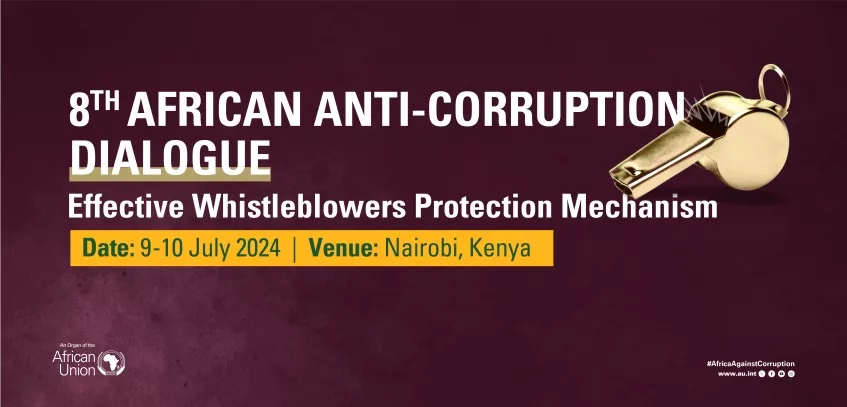|
Getting your Trinity Audio player ready...
|
Writes Baboloki Semele
As Africa continues its relentless pursuit of transparency and accountability, the 8th African Anti-Corruption Dialogue, set to be held on July 9-10, 2024, emerges as a critical gathering for stakeholders dedicated to eradicating corruption. Under the theme “Effective Whistleblowers Protection Mechanism: A Critical Tool in the Fight Against Corruption,” this year’s dialogue promises to be a pivotal moment in reinforcing the role of whistleblowers in the continent’s anti-corruption crusade.
The backdrop to this significant event is the 20th anniversary of the African Union Convention on Preventing and Combating Corruption (AUCPCC). The convention, which has been instrumental in shaping the anti-corruption landscape, recently underwent a comprehensive review. While celebrating progress and achievements, the review also underscored a persistent challenge: the inadequacy of whistleblower protection mechanisms across Member States.
A concept note issued by the African Union Advisory Board Against Corruption (AUABC) says it recognises whistleblowers as essential players in uncovering corruption.
The AUABC has dedicated 2024 to enhancing whistleblower protection. The note added that the board’s commitment stems from the vital role whistleblowers play in exposing corruption—a clandestine activity that often goes unreported unless brave individuals step forward to reveal it.
Major global entities like the United Nations Office on Drugs and Crime (UNODC), Transparency International, and the Organization for Economic Co-operation and Development (OECD) have consistently highlighted the importance of robust whistleblower mechanisms. These mechanisms not only encourage the reporting of corruption but also ensure the safety and anonymity of those who choose to blow the whistle.
However, as Amnesty International’s recent study on Anti-Corruption Human Rights Defenders reveals, whistleblowers often face severe reprisals due to the lack of strong legal frameworks. This situation calls for urgent governmental action to remove barriers to whistleblowing and foster a culture of accountability.
The upcoming dialogue according to the note aims to tackle these issues head-on. Participants will engage in a series of webinars and panel discussions, where they will share insights, best practices, and recommendations for improving whistleblower protection across Africa. The dialogue will also feature the presentation of research findings on the state of whistleblower protection in the continent, contributing to a deeper understanding and better strategies.
A key highlight will be the convening of the Third African Anti-Corruption Non-State Actors Forum. This forum will take place on the sidelines of the dialogue, offering a unique platform for civil society organizations, academia, and other actors to collaborate and amplify their efforts in the anti-corruption space.
One of the dialogue’s ambitious goals is to develop a Model Legislation on Whistleblowing for African Union Member States. This model aims to provide a comprehensive legal framework that ensures whistleblowers can report corruption without fear of retaliation. Additionally, the dialogue will produce a publication detailing the status of whistleblower protection mechanisms in Africa and submit actionable recommendations to the African Union’s Policy Organs.
The expected outcomes of the dialogue are significant. They include a detailed publication on the current state of whistleblower protection, strategies for effective mechanisms, and a strengthened collaboration between regional economic communities, national anti-corruption authorities, and civil society organizations.
In the words of the AUABC, “Governments must work on putting in place effective whistleblower legislation. Whistleblowers must be protected at all costs. Effective anonymous reporting systems are crucial to combatting corruption. Citizens must support whistleblowers to promote the fight against corruption.






